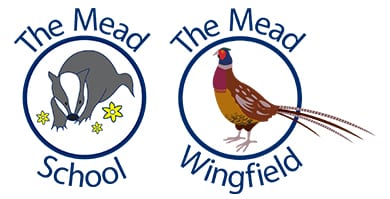Underpinning principles: Understanding learning
The greatest impact on learning is the daily lived experiences of students in classrooms, and that is determined much more by how teachers teach than by what they teach. Wiliam, 2017
Understanding learning within our school is characterised by:
Expecting the Unexpected Learning is not a linear process. It can be recursive, with deviations and digressions that can lead to unexpected and exciting outcomes. Teachers adapt learning experiences to ensure that unexpected opportunities are valued and exploited for maximum impact. “Each day is not a closed box, pre-packaged…but rather a time that you construct with the other children and colleagues – a search for meaning that only the children can find.” (Rinaldi, 2006)
Mistakes Adults demonstrate that they not only tolerate but relish learner confusion and support children through ‘liminal’ states (the unstable space in which the learner may oscillate between old and emergent understandings). Children are encouraged to see mistakes as ‘learning opportunities’ and to take risks in their thinking and questioning. Adults encourage children to negotiate the ‘liminal space of understanding’ and invest time in addressing their misunderstandings and uncertainties.
Metacognition Children are supported to explore their own learning are to understand how they learn best. Adults enable children to identify and articulate their thought processes and to independently select helpful strategies to tackle challenges more effectively. Adults enable children to monitor, reflect and analyse their own performance. “Most of what our students need to know hasn’t been discovered or invented yet. ‘Learning how to learn’ used to be an optional extra in education; today, it’s a survival skill.” (Wiliam, 2015)
Active Learning Active learning that involves physical movement is planned for wherever possible. Children have a natural desire to investigate the world around them. Investigation involves first-hand discovery and children use all of their senses to increase their knowledge and understanding. Adults provide children with authentic opportunities to explore a wide range of multi-sensory and mulit-dimensional materials and problems. Planned learning experiences follow a sequence that supports children in moving from ‘novice’ to ‘expert’. Children are provided with concrete experiences or apparatus that involve practical hands on learning which in time is invested to develop language, thinking and a sense of why this learning is important.
Communication and Interaction Adults communicate and interact with children focussing on skills that promote learning and curiosity – questioning, describing, modelling, and demonstrating. Adults encourage hypothesis and exploration supporting independent learning and problem solving, rather than ‘jumping in’ with additional support and answers. Episodes of ‘sustained shared thinking’ (when two or more individuals ‘work together’ in an intellectual way to solve problems, clarify a concept, evaluate an activity, extend a narrative etc) are actively sought. A common language for thinking and learning is created through the use of language frames which are introduced and modelled by all adults.
Mastery Children are immersed in rich experiences followed by a sequence of learning activities that unpick and teach all the essential skills or ‘threshold concepts’ required in order to be successful. Children are then enabled to apply all of the key skills within an extended context which leads to evaluation and assessment of learning. This approach is used across the curriculum for all children with greater depth being used to challenge the higher attaining children.
Responsiveness Adults respond to individual learning needs, recognising the need to build on prior learning at appropriate levels, providing appropriate challenge for those who are more confident and support for those who have less existing knowledge. Adult understand that children learn in different ways and are conscious of individual schema. Adults will use their personal knowledge of children to provide learning experiences that respond to individual needs and preferences.
Deep Learning Adults understand the difference between ‘surface/shallow’ and ‘deep’ learning. Surface learning is often associated with factual recall or the specific application of a technique in response to a specific problem, and sometimes to being briefly able to recite a ‘stock’ answer. Deep learning is associated with the children’s understanding of the underlying concepts: they are able to distinguish principles from examples and to apply their knowledge to different problems or contexts. It is a reflection of the depth of understanding. Practise is essential to deep learning. Children are given opportunities to practise knowledge skills and understanding over a period of time in different contexts and situations in order to build automaticity and help learning ‘stick’.
Play Adults understand the importance of play and provide numerous opportunities for children to engage in play that is purposeful and enables them to both grapple with new concepts and practise those already introduced in a meaningful way. Children are supported to create their own rules and goals, and to manage materials, people and time with confidence.
References
Rinaldi, C (2006) In Dialogue with Reggio Emilia: Listening, Researching and Learning: Contextualising, Interpreting and Evaluating Early Childhood Education (Contesting Early Childhood). Abingdon: Routledge
Wiliam, D (2015) Embedding Formative Assessment: Practical Techniques for K-12 Classrooms. West Palm Beach: Learning Sciences International
Wiliam, D (2017) Embedded Formative Assessment. Bloomington: Solution Tree Press
